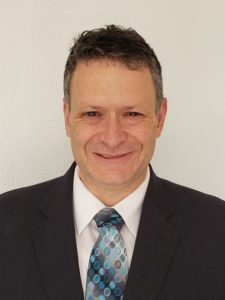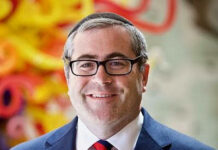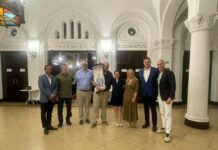
We are living through a period of plagues, floods, wildfires and other biblical events. In the Torah, such catastrophes often follow poor human behavior — times when we ignore the word of God.
You can take those stories literally or metaphorically. And many rabbis argue that such direct causation is a gross oversimplification.
And today we are both scientifically advanced and inclined, so we can offer credible, rational explanations for events once considered biblical.
But as Simchat Torah approaches on Sept. 28 and 29, the question remains: During a time of chaos, as we finish one annual Torah reading cycle and commence another, can modern Jews benefit from doing a little more reading of the good book?
It almost sounds like a joke: Ask rabbis if Jews can benefit from doing more Torah reading. What do you think they are going to say?
“Yes,” answered every single rabbi interviewed for this story.
But the real question, and the real answers, came in the follow-up to the obvious “yes” response. If modern Jews can benefit from doing more Torah reading in 5782, why is that the case?
Rabbinical answers to this question were both varied and equally wise.
Rabbi Valman Lipsker runs the Chabad Lubavitch Center in Philadelphia. He said the law and guidance of the Torah can eliminate plagues and floods.
“God said it,” Lipsker added. “If you follow my guidance, I will give you all you need.”
But unfortunately, according to Lipsker, not enough modern Jews are reading Torah.
“If we read it more, we would have more recognition of the beauty God is giving us,” he said. “It’s time we return to Him.”
Rabbi Aaron Gaber, who leads the Conservative Congregation Brothers of Israel in Newtown, generally agrees with Lipsker.
Gaber explained that, in Deuteronomy, the last book of the Torah, Moses transmits God’s ethical will through speeches to the Jewish people. In those speeches, Moses discusses our covenantal relationship with Him.
“God promises to care for us and keep us as his chosen people,” Gaber said. “Our responsibility is to live by the mitzvot.”
Then, in Genesis, the first book of the Torah, by punishing Adam and Eve, God makes clear to humans that we’re holding the pen to “write the story of the world,” the rabbi said.
“It’s up to us to treat that world with love and compassion,” Gaber added. “And if we don’t, there are consequences.”
The Conservative rabbi denied the literal interpretation that God punishes humans with natural disasters. But he did conclude that, in a modern context, living by the mitzvot requires us to consider our relationship with the machine.
There is a tension between humanity’s ability to advance and the health of the environment, Gaber explained. And right now, we’re out of balance, and humanity’s advancement is at least partially responsible for the climate change we’re experiencing.
“How do we make advancements and at the same time be stewards of the world?” he asked. “We have to work at that.”
Rabbi Albert Gabbai, who guides Congregation Mikveh Israel in Philadelphia, said we need to work harder to understand our moral relationship with the larger world.
That requires us to read Torah so we can grasp one core principle in particular — one we repeat during Yom Kippur services.
That every individual action matters. Nothing is meaningless, and nothing goes unnoticed by Him.
“When I go to the dust, is it all meaningless?” Gabbai asked. “Absolutely not.”
But today, according to Gabbai, too few Jews are taking the time to deeply consider this principle and others. He believes we’re too often choosing superficial, junk food-like alternatives, from social media to television, over our water, which is the Torah.
“Torah doesn’t change. It’s the principles. Everything emerges from it,” he said.
Rabbi Eliezer Hirsch of the Orthodox congregation Mekor Habracha in Center City supported Gabbai’s micro, individual-level interpretation.
He thinks we can benefit from more Torah reading because it should guide our actions every day. But he also rejected direct causations between individual actions and macro-scale events.
“To pin exact behavior to events is dangerous,” Hirsch said.
Rabbi Eliott Perlstein, who leads the Conservative synagogue Ohev Shalom of Bucks County, offered a similar refrain. That said, he still believes our behavior has consequences, and that Torah can help us be cognizant of that.
“Sooner rather than later, those who wreak havoc will have havoc wreaked in their own lives,” Perlstein concluded. “We ought to be very aware of that.”
[email protected]; 215-832-0740






